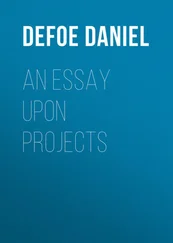I lay in the prison near fifteen weeks after this order for transportation was signed. What the reason of it was, I know not, but at the end of this time I was put on board of a ship in the Thames, and with me a gang of thirteen as hardened vile creatures as ever Newgate produced in my time; and it would really well take up a history longer than mine to describe the degrees of impudence and audacious villainy that those thirteen were arrived to, and the manner of their behaviour in the voyage; of which I have a very diverting account by me, which the captain of the ship who carried them over gave me the minutes of, and which he caused his mate to write down at large.
It may perhaps be thought trifling to enter here into a relation of all the little incidents which attended me in this interval of my circumstances; I mean, between the final order of my transportation and the time of my going on board the ship; and I am too near the end of my story to allow room for it; but something relating to me and my Lancashire husband I must not omit.
He had, as I have observed already, been carried from the master's side of the ordinary prison into the press–yard, with three of his comrades, for they found another to add to them after some time; here, for what reason I knew not, they were kept in custody without being brought to trial almost three months. It seems they found means to bribe or buy off some of those who were expected to come in against them, and they wanted evidence for some time to convict them. After some puzzle on this account, at first they made a shift to get proof enough against two of them to carry them off; but the other two, of which my Lancashire husband was one, lay still in suspense. They had, I think, one positive evidence against each of them, but the law strictly obliging them to have two witnesses, they could make nothing of it. Yet it seems they were resolved not to part with the men neither, not doubting but a further evidence would at last come in; and in order to this, I think publication was made, that such prisoners being taken, any one that had been robbed by them might come to the prison and see them.
I took this opportunity to satisfy my curiosity, pretending that I had been robbed in the Dunstable coach, and that I would go to see the two highwaymen. But when I came into the press–yard, I so disguised myself, and muffled my face up so, that he could see little of me, and consequently knew nothing of who I was; and when I came back, I said publicly that I knew them very well.
Immediately it was rumoured all over the prison that Moll Flanders would turn evidence against one of the highwaymen, and that I was to come off by it from the sentence of transportation.
They heard of it, and immediately my husband desired to see this Mrs. Flanders that knew him so well, and was to be an evidence against him; and accordingly I had leave given to go to him. I dressed myself up as well as the best clothes that I suffered myself ever to appear in there would allow me, and went to the press–yard, but had for some time a hood over my face. He said little to me at first, but asked me if I knew him. I told him, Yes, very well; but as I concealed my face, so I counterfeited my voice, that he had not the least guess at who I was. He asked me where I had seen him. I told him between Dunstable and Brickhill; but turning to the keeper that stood by, I asked if I might not be admitted to talk with him alone. He said Yes, yes, as much as I pleased, and so very civilly withdrew.
As soon as he was gone, I had shut the door, I threw off my hood, and bursting out into tears, 'My dear,' says I, 'do you not know me?' He turned pale, and stood speechless, like one thunderstruck, and, not able to conquer the surprise, said no more but this, 'Let me sit down'; and sitting down by a table, he laid his elbow upon the table, and leaning his head on his hand, fixed his eyes on the ground as one stupid. I cried so vehemently, on the other hand, that it was a good while ere I could speak any more; but after I had given some vent to my passion by tears, I repeated the same words, 'My dear, do you not know me?' At which he answered, Yes, and said no more a good while.
After some time continuing in the surprise, as above, he cast up his eyes towards me and said, 'How could you be so cruel?' I did not readily understand what he meant; and I answered, 'How can you call me cruel? What have I been cruel to you in?' 'To come to me,' says he, 'in such a place as this, is it not to insult me? I have not robbed you, at least not on the highway.'
I perceived by this that he knew nothing of the miserable circumstances I was in, and thought that, having got some intelligence of his being there, I had come to upbraid him with his leaving me. But I had too much to say to him to be affronted, and told him in few words, that I was far from coming to insult him, but at best I came to condole mutually; that he would be easily satisfied that I had no such view, when I should tell him that my condition was worse than his, and that many ways. He looked a little concerned at the general expression of my condition being worse than his, but, with a kind smile, looked a little wildly, and said, 'How can that be? When you see me fettered, and in Newgate, and two of my companions executed already, can you can your condition is worse than mine?'
'Come, my dear,' says I, 'we have a long piece of work to do, if I should be to relate, or you to hear, my unfortunate history; but if you are disposed to hear it, you will soon conclude with me that my condition is worse than yours.' 'How is that possible,' says he again, 'when I expect to be cast for my life the very next sessions?' 'Yes, says I, ''tis very possible, when I shall tell you that I have been cast for my life three sessions ago, and am under sentence of death; is not my case worse than yours?'
Then indeed, he stood silent again, like one struck dumb, and after a while he starts up. 'Unhappy couple!' says he. 'How can this be possible?' I took him by the hand. 'Come, my dear,' said I, 'sit down, and let us compare our sorrows. I am a prisoner in this very house, and in much worse circumstances than you, and you will be satisfied I do not come to insult you, when I tell you the particulars.' Any with this we sat down together, and I told him so much of my story as I thought was convenient, bringing it at last to my being reduced to great poverty, and representing myself as fallen into some company that led me to relieve my distresses by way that I had been utterly unacquainted with, and that they making an attempt at a tradesman's house, I was seized upon for having been but just at the door, the maid–servant pulling me in; that I neither had broke any lock nor taken anything away, and that notwithstanding that, I was brought in guilty and sentenced to die; but that the judges, having been made sensible of the hardship of my circumstances, had obtained leave to remit the sentence upon my consenting to be transported.
I told him I fared the worse for being taken in the prison for one Moll Flanders, who was a famous successful thief, that all of them had heard of, but none of them had ever seen; but that, as he knew well, was none of my name. But I placed all to the account of my ill fortune, and that under this name I was dealt with as an old offender, though this was the first thing they had ever known of me. I gave him a long particular of things that had befallen me since I saw him, but I told him if I had seen him since he might think I had, and then gave him an account how I had seen him at Brickhill; how furiously he was pursued, and how, by giving an account that I knew him, and that he was a very honest gentleman, one Mr. ——, the hue–and–cry was stopped, and the high constable went back again.
He listened most attentively to all my story, and smiled at most of the particulars, being all of them petty matters, and infinitely below what he had been at the head of; but when I came to the story of Brickhill, he was surprised. 'And was it you, my dear,' said he, 'that gave the check to the mob that was at our heels there, at Brickhill?' 'Yes,' said I, 'it was I indeed.' And then I told him the particulars which I had observed him there. 'Why, then,' said he, 'it was you that saved my life at that time, and I am glad I owe my life to you, for I will pay the debt to you now, and I'll deliver you from the present condition you are in, or I will die in the attempt.'
Читать дальше
Конец ознакомительного отрывка
Купить книгу












